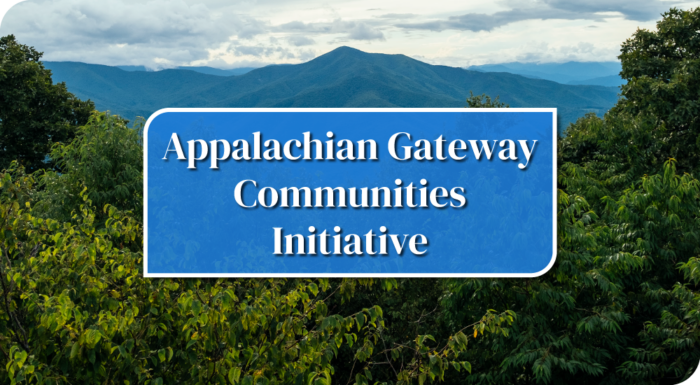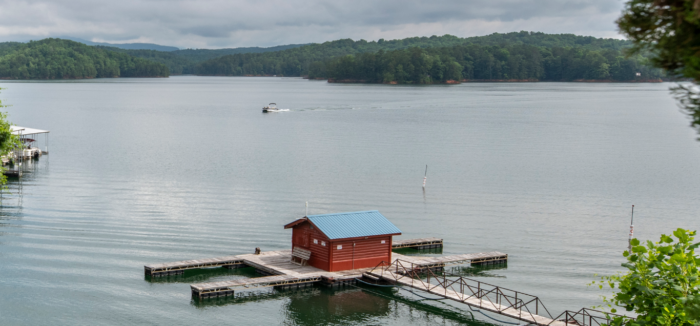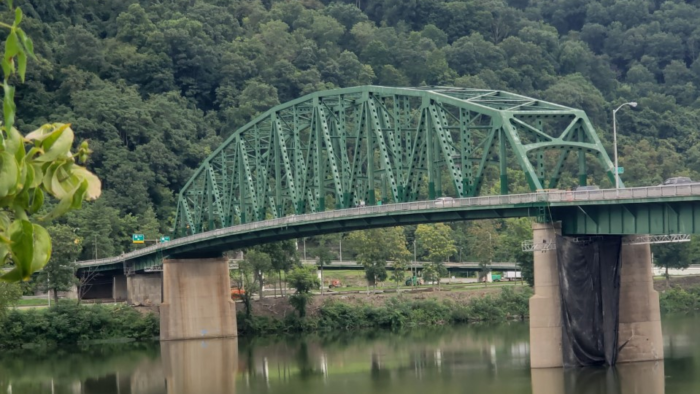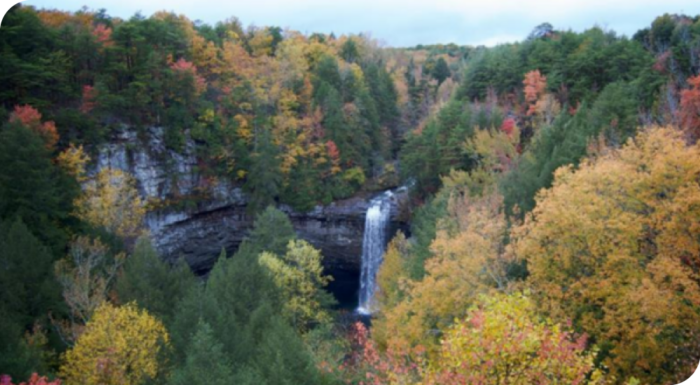
Located between Nashville and Chattanooga and accessible from I-24, the South Cumberland area comprises six counties in Southern Tennessee. It is a gateway to the nearly 31,000-acre South Cumberland State Park, which features cliff faces, waterfalls, and twelve trailheads.
Initially applying to the 2019 Appalachian Gateway Communities Initiative (AGCI) workshop as an unofficial team of dedicated community members from across six counties, the Tennessee South Cumberland Tourism Partnership (the Partnership) is finalizing its incorporation papers to become a 501(c)(3). The Partnership will join local citizens, governments, and businesses together in a mission of establishing future economic and business plans. This vision was realized in part thanks to the model communities with which the team interacted at the 2018 workshop, particularly the Pennsylvania Wilds, a sister gateways team from Northern Appalachia. In many ways, the South Cumberland team saw a possible future for their own community in the successes of the Pennsylvania Wilds—indeed, South Cumberland, like the Pennsylvania Wilds, surrounds a large state park and attracts natural asset-based tourism such as rock climbing, hiking, and camping.
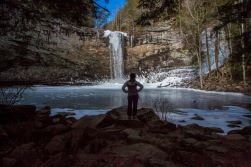
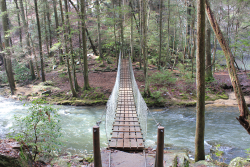
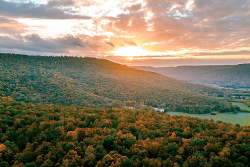
Sustainably Growing Tourism
Hearing the story of Pennsylvania Wilds helped to get local leadership on board with the Partnership’s vision and has helped to unify the area’s nine communities with a more regional mindset. Many of the region’s residents and their leaders have come to agree that tourism is a valuable source of economic development, especially in the wake of decreased coal extraction and timbering. Maintaining sustainable tourism and respecting the visual character of the region have been the team’s key priorities in tourism development, a goal emphasized by team lead Rick Dreves. For this reason, the Partnership is currently undertaking the creation of a design guide, inspired by a similar book produced for the Pennsylvania Wilds team, which the South Cumberland team was exposed to through the AGCI workshop.
For Dreves, the workshop’s most memorable and impactful outputs were its planning programs. Their challenge-and-solution structure helped him and his team understand that good planning requires good listening skills.
The workshop gave us a really good road map—we could see that there are a set of steps you can follow that… let us tackle our big, long-range plan in an organized way.
Arts have also played a major part in the recent developments in the South Cumberland region. A nationally aired PBS show, Bluegrass Underground, features bluegrass and folk musicians from across the country performing in the South Cumberland caverns, a large underground cavern concert hall. When COVID-19 struck, the venue was temporarily closed, but a large outdoor amphitheater was opened in its place.
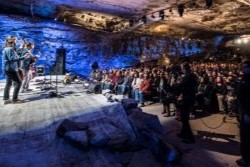
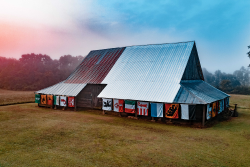
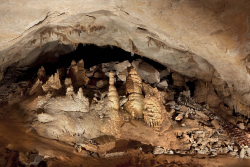
Pictured left to right: concert in South Cumberland Caverns; Historic Stoker-Stampfli Farm & Museum; South Cumberland Caverns
Building on the Outdoor Travel Boon
COVID-19 was mostly not a tourism challenge for the region; if anything, it acted as a boon for outdoor recreation due to the increased need for socially distanced travel and tourism offerings. South Cumberland’s parks saw a massive boom in visitation, resulting in what Dreves estimated were record-breaking incomes from tourism, which served as a valuable learning opportunity for tourism development. The most notable difficulty presented by COVID was simply reaching a point in organization where the South Cumberland team was capable of forming a 501(c)(3).
Thanks to grants that built on the team’s initial successes, the South Cumberland region has also seen new wayfinding kiosks built in each of its nine communities, accompanied by a website, tnsouthcumberland.com, which allows visitors to access maps digitally. In addition, another grant allowed the region to begin preparing a number of agricultural tourism sites, including farm tours for mushroom and worm-growing facilities.
Many other ventures are on the horizon for the Partnership. Soon, a new off-road vehicle area in the state park will be opened. The Partnership’s ambitions build on exemplars from the workshop, too; it is working to establish more areas for mountain biking, inspired by workshop presenter Anthony Duncan from the International Mountain Bicycling Association. Moreover, historic assets like coke ovens and Swiss colonies are being transformed into tourist destinations.
